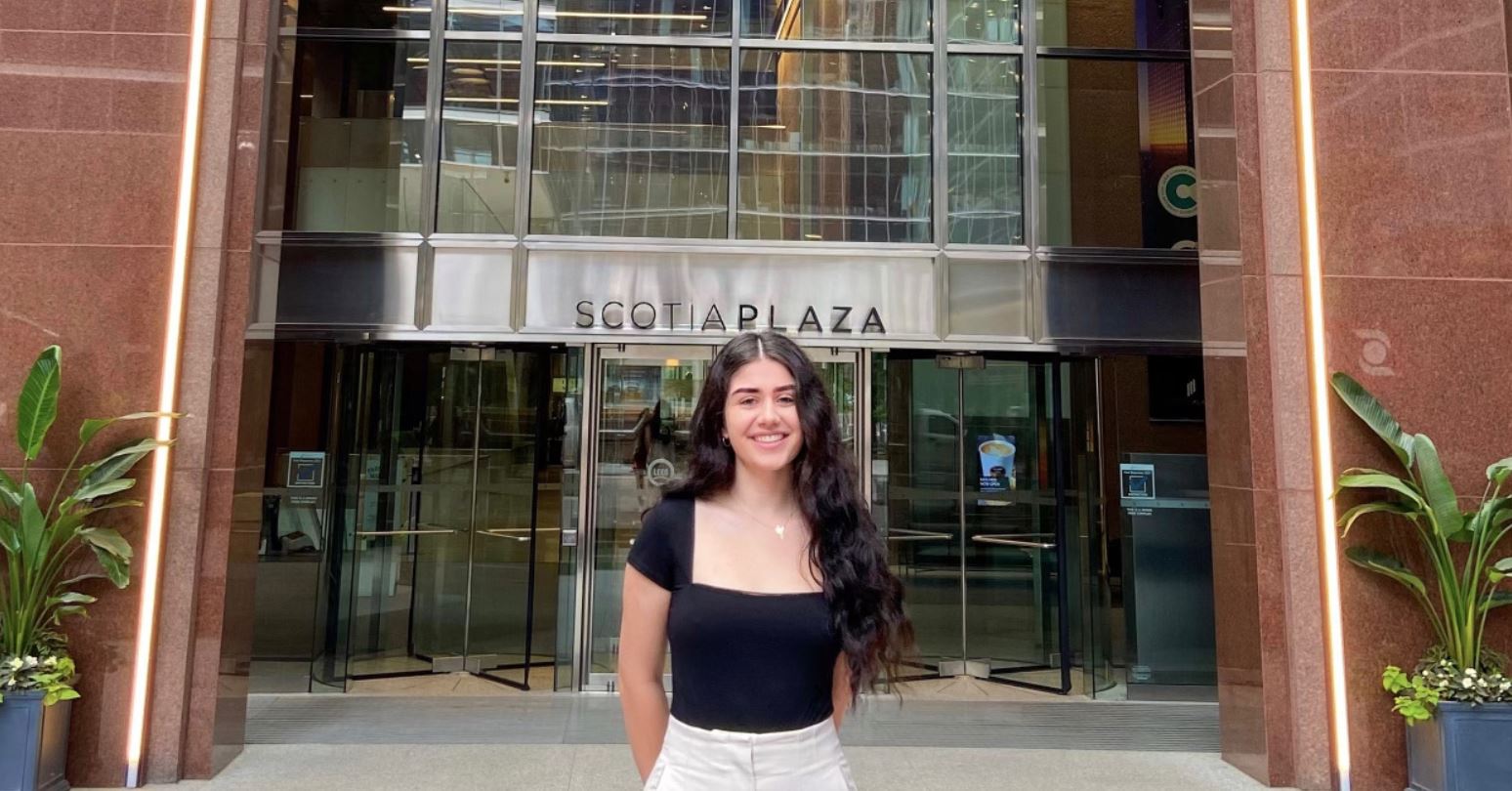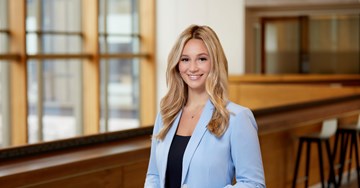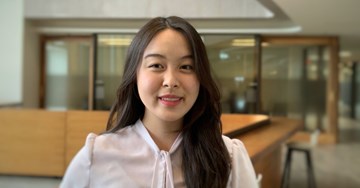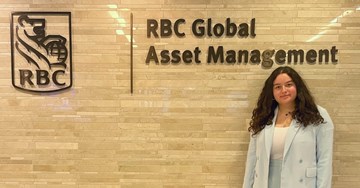Jasmine Kordbacheh is an HBA student at the Ivey School of Business pursuing a dual degree with an Honours Specialization in Philosophy. She spent her summer working at Scotiabank as a credit research analyst intern as part of Ivey's Women in Asset Management program.
This summer, I spent 10 weeks working at Scotiabank’s asset management firm, 1832. I was a credit research analyst on the fixed income team and, as daunting as that sounds, my experience was one for the books. It was the start of June, and I had just finished an intense four-weeks of courses through the in-class component of Ivey’s Women in Asset Management (WAM) Program. I was ready to enter the workplace with my newfound knowledge. However, before I could actually begin my new exciting job, I had to complete an unexpected exercise: take an oath of silence in compliance training. All right, it was not exactly an oath, but I did participate in a training session on the seriousness of insider trading and the importance of keeping information within the office private. This meant I could not tell my parents or friends about what I did at work. While that was difficult, it did help me to see the significance of my position, which was exciting.
The first assignment
My first assignment was to write an investment rationale on a tech company. As a philosophy major, I thought this would be quite easy. I love writing and developing arguments and an investment rationale is just that: research supporting a thesis. I was not prepared for the information overload that came along with credit research. When I wrote philosophy essays, I knew that I had taken all relevant information into account because I was assigned specific excerpts and passages. But when I was researching this company, there was always more to learn, do, and consider.
The day before I had to present this investment rationale to my boss, I realized I had spent so much time researching that I was drowning in a pool of information and incapable of discerning my thesis. My cool significant job suddenly seemed a lot less cool and a lot more stressful. This was my first big learning curve. I had to realize the point at which I had enough information and when it was time to make a decision. This experience differentiated the position from any of my previous jobs. There was no formulaic approach to take and no right or wrong answer. I had to trust that I had the knowledge and understanding to make an informed decision. And it was up to me to support it.
The importance of a supportive team
Thankfully, I also had an amazing and supportive team that was more than happy to help guide me. As a student entering the workforce, I worried that I had to do everything right on the first try or else I’d be considered an unsatisfactory employee. I quickly learned how far this was from the truth. I learned that if my tasks were easy, then I wasn’t being challenged and, consequently, wouldn’t grow. I also learned that adversity is part of learning and growing. Most importantly, my team was there to help me along the way. Asking for help decreased my stress and I learned a lot. In the end, the feeling of satisfaction I had when presenting my completed investment rationale mimicked that of my Aristotelian essays and I was proud.
The final assignment
Later in the summer, I was assigned my big final project. This involved creating a comparison table that looked at a variety of tech companies and presenting it to the entire credit research team. Although my team members were all kind and approachable individuals, this was still a frightful task. I was nervous because I had been a student of generation Zoom for the past two years comfortably hiding with my mic and camera turned off, and also because the work I did would have a real-world impact on the actions of 1832’s investment team. My work didn’t just affect my own grades anymore, I had a responsibility to my team to do well. I spent weeks perfecting my table, ensuring that both its visuals and content were work that I was pleased to call mine.
The presentation was virtual, which helped to decrease my fear since I did not have to worry about glaring eyes on me as I tried to recall the free cash flow of various companies. Thankfully, the presentation went better than I could have hoped for, and when I received emails from my team members afterward complimenting me on the work, it was even more rewarding than getting a good grade.
My internship pushed me out of my comfort zone in terms of what I thought I was capable of and I am so thankful for what it has taught me. I intend to carry its lessons with me into my next summer internship as well as the remainder of my career.



